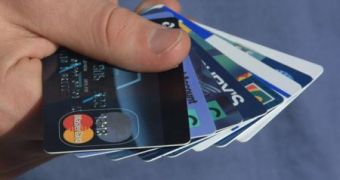A few weeks ago, a security researcher managed to prove us that a huge number of credit cards could be bought online at very low prices. And today, The Times confirms this issue, as the publication has managed to access numerous samples of stolen data, supposed to convince the users to buy a bigger pack of details. The information contains security codes, account numbers and even PINs, wrote"The Times" in the Monday article.
Moreover, some security flaws enhanced the access to details of 32 persons, the same publication continued; 100 websites were flagged as selling Britons' private bank details; "a British "e-passport" for sale, although the Government insisted that they were unhackable. "The Times" has even found "a fraudster offering to sell 30,000 British credit card numbers for less than ?1 each."
After "The Times" has identified the security glitches, the British information watchdog announced that it would start an investigation, in order to protect the country's residents from this kind of threats. Richard Thomas, the Information Commission, confirmed for the online publication that he will investigate the case and take security measures to block the fraud.
"We will be looking at the evidence you have provided and investigating the circumstances. This looks serious and is a matter of genuine concern. We can take action against UK-based organisations that flout the Data Protection Act. If some of these websites are not UK-based we will work with our counterparts in the relevant country," Richard Thomas' spokesman told "The Times".
In case you missed the news, this piece of story comes just after the shocking data leakage in the HMRC database, containing the details of about 25 million residents. The officials confirmed that the entire amount of information was copied on some CDs in order to be sent to another department, but the discs never reached the destination. Nobody knows for sure who received the CDs, all the residents being worried that their personal details might fall into criminal hands.

 14 DAY TRIAL //
14 DAY TRIAL //